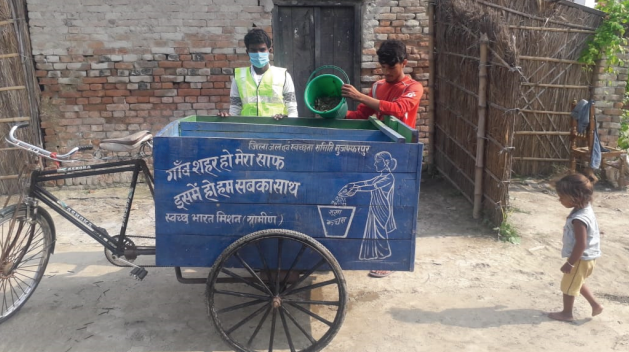Employment Generation and Livelihood Promotion through Cluster-Based Approach for empowering migrant workers
Employment Generation and Livelihood Promotion through Cluster-Based Approach for empowering migrant workers
The Covid-19 pandemic presented various socio-economic groups across countries with grave challenges. Migrant workers in India - mostly comprising daily wage labourers working in manufacturing and construction industries, and those engaged in agriculture, retail and services - are one such group that was adversely affected. As the livelihoods of many of these workers were disrupted, several decided to return to their native towns and villages, leading to a situation where different state administrations had to manage their movements.
State initiatives
Migrant workers returning to Bihar during the Covid-19 outbreak were registered on the state’s disaster management portal, along with details such as their name and mobile number, state of origin, skills, home district and block.
The Bihar State Migrant Labour Accident Grants Scheme Rules, 2008, was amended to include Rs 1,00,0001 as ex-gratia amount for dependants of urorganized sector workers who may succumb to Covid-19. Similarly, their dependants are also eligible for Rs 1,00,000 under the Unorganised Sector Workers and Artisan Social Security Scheme, 2011.
District initiatives
 In Bihar’s Muzaffarpur district, the district administration identified seven clusters in various blocks for employment generation and set up manufacturing units of different industries, under the Zila Audyogik Nav Parivartan Yojana and Mukhyamantri Kushal Shramik Udyami Cluster Yojana.
In Bihar’s Muzaffarpur district, the district administration identified seven clusters in various blocks for employment generation and set up manufacturing units of different industries, under the Zila Audyogik Nav Parivartan Yojana and Mukhyamantri Kushal Shramik Udyami Cluster Yojana.
Muzaffarpur District undertook various activities and initiatives - plantation drives, rain-water harvesting, soak-pit construction, rejuvenation of wells, construction of community toilets, anganwadi constructions and upgradation of infrastructure, upgradation and construction of Panchayat Sarkar Bhawan, cattle- and goat-shed constructions, solid and liquid waste management under the Lohiya Swachh Bharat Abhiyaan - to employ returned migrants.
Under the Bihar government’s Zila Audyogik Nav Parivartan Yojana and Mukhyamantri Kushal Shramik Udyami Cluster Yojana, seven clusters were identified to be set up at various blocks. As per the skill mapping done, these clusters have been developed for employment generation by setting up a readymade garment manufacturing unit, sweets packaging boxes unit, lahthi (lac bangle) park, mobile charger assembling unit, and paver blocks manufacturing unit. Each cluster started with 25–30 members and grew to provide employment to 200–300 people. The cluster and deputy heads, and accounts lead were elected amongst the group members through meetings. These clusters are registered as Limited Liability Partnership entities to ensure sustainability and proper workflow.
The Muzaffarpur District Administration - with the support of Bihar Rural Livelihoods Promotion Society or Jeevika—is also focused on providing maximum support to small scale businesses under its jurisdiction, there by making people more self-reliant and improving the living standards of migrants who have returned home.
Source : Empowering Migrant Workers through Skill Development and Livelihood Generation - NITI Aayog
Last Modified : 6/20/2023
This topic provides information about Narmada Tran...
This topic provides information about Model School...
This topic provides information about Overview of ...
This Topic provides information about Solar powere...
